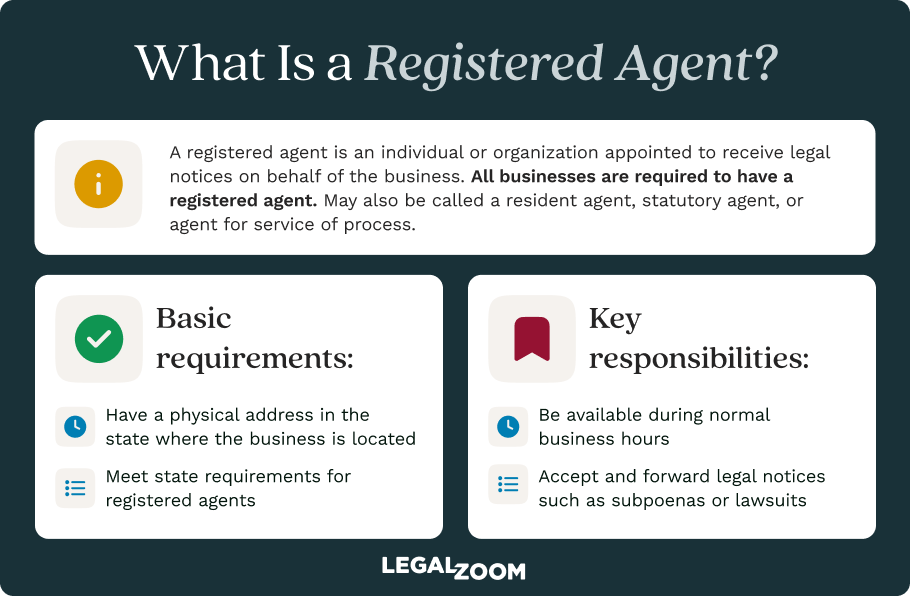South Carolina is a thriving destination for entrepreneurs. In 2025 alone, there were 530,402 small businesses registered in the state, making up 99.4% of all SC businesses.
Many small business owners interested in establishing their own limited liability companies (LLCs) often decide to do so in South Carolina because of the state's business-friendly policies. For example, South Carolina has a low business income tax and doesn't require LLCs to file annual reports. Moreover, LLCs offer business owners additional perks like personal liability protection and tax flexibility.
Follow along to learn how to start an LLC in South Carolina, from selecting a name and filing the articles of organization to sorting out LLC taxes and paying the state filing fees.
How to start an LLC in South Carolina in steps
If you're wondering how to get an LLC in South Carolina, follow these simple steps:
1. Name your South Carolina LLC
The first step involves choosing an appropriate business name for your limited liability company. As a business owner, you must comply with the South Carolina state naming guidelines. Some of the business name rules include the following:
- Your business name must include the words limited liability company, LLC, L.L.C., limited company, LC, L.C., or Ltd. Co.
- Your name must be different from an existing business in the state.
- The business name cannot contain words used to name a government agency (i.e., State Department, CIA, FBI, Treasury, etc.)
- Certain restricted words (bank, lawyer, attorney, credit union, etc.) may require additional documentation and licensure paperwork.
To ensure your LLC name is unique, you can use the business name search tool on the South Carolina Secretary of State Business Entities Online website. This South Carolina LLC search feature lets you view already existing South Carolina business names in the database.
If you aren't ready to register your LLC but are concerned your name might be taken by someone else, you can reserve it for a small fee. In South Carolina, names may be reserved for up to 120 days by paying the $25 filing fee and submitting the proper form to the state authority.
2. Choose your registered agent
Choosing a registered agent is the next step in figuring out how to start an LLC in South Carolina. A registered agent is a person or business entity that receives legal documents and official government correspondence on behalf of your LLC.
Your registered agent must meet the following criteria:
- They must have a physical street address in South Carolina.
- Their address cannot be a P.O. Box.
- They must be at least 18 years old.
- They must be on-site and available to accept documents during regular business hours.
Your registered agent can be yourself, another South Carolina resident, or a business entity authorized to conduct business in the state, or you can hire a registered agent service. At LegalZoom, we offer comprehensive registered agent services to oversee all your official documents.

3. Prepare and file articles of organization
Now, you're ready for the LLC formation phase. To officially establish your business entity with the state, you must file articles of organization with the South Carolina Secretary of State. Though it sounds like a big job, that simply means filling out a relatively simple online form and submitting it. You can submit the articles of organization application online through the Business Entities Online portal or send it by mail. There is a one-time $110 filing fee.
When filling out the articles of organization paperwork, you can expect to include the following information about your South Carolina LLC:
- Name and physical address of your limited liability company
- Name and address of your registered agent
- Name and address of each organizer
The state will issue you a certificate that confirms the LLC formally exists after the LLC's formation documents are filed and approved.
4. Create an operating agreement
While South Carolina does not require your business to file an LLC operating agreement, creating one can help you determine internal operations, such as legal decisions, roles and responsibilities, and other company affairs. Having a readily accessible, written operating agreement is helpful for various reasons, including settling disputes that may arise over financial agreements and other potential litigation.
As you draft your operating agreement, be sure to address the following:
- Management structure
- Business ownership
- Admittance and withdrawal of LLC members
- Voting rules and decision-making
- Allocation of profits and losses
- Tax structure
- Dissolution instructions
- Indemnification and liability clauses
- A determination what happens when a member wants to sell his or her interest, dies, or becomes disabled. This might include buy-sell or buyout provisions.
To help you get started with the drafting process, consider using a South Carolina LLC operating agreement template as a foundation to cover the basics. However, since the operating agreement is crucial for your LLC’s operations, consulting with an attorney can ensure the document is comprehensive, legally sound, and customized to your specific situation.
Once you've created your LLC operating agreement, you do not need to file it with the state, but you should distribute copies to your managers, members, and stakeholders.
5. Get an employer identification number and open a business bank account
Next, you can apply for your federal employer identification number (EIN) with the Internal Revenue Service (IRS). You'll need this number to pay federal and state taxes, hire employees, and open a business bank account. It's free to file with the IRS—you can file online, by mail, or via fax. Or, you can take advantage of LegalZoom’s EIN service, and we'll complete your application for you.
Once you've received your EIN, register your LLC with the South Carolina Department of Revenue portal to file and pay your taxes. You can also open a bank account for your business transactions. Opening a business account that's separate from your personal bank account helps establish personal liability protection and keeps your business assets apart from your personal assets. Contact your bank to set up your account for your business profits.
6. Register business licenses
There is no statewide business license required to operate in South Carolina, but some local cities and counties require businesses to obtain certain licenses and permits, depending on their business activities. Some federal permits and occupational licenses may also apply. For instance, if you plan to sell taxable goods or services and charge sales tax, you must register for a sales tax permit through the South Carolina Department of Revenue.
Navigate to the SC.gov website to determine if you need a federal or local business license or permit for your LLC. It's also important to note that there are different filing fees associated with each license and permit.
Free South Carolina Business Name Check
Use our free name check tool to search the South Carolina Secretary of State database and see if your business name is available.
By clicking "Check Availability," I agree to LegalZoom's Terms of Use. This search is a preliminary check of state databases and does not include variations or trademarks. Results do not guarantee name availability or compliance with legal requirements.
Next steps after forming your South Carolina LLC
After completing the above steps, it’s time to move forward with your business. The following optional steps are simple ways to set yourself up for success.
Register a domain name
Even if you don't think you'll need a webpage, you probably will. At the very least, you should reserve the option of having one in the future by buying your domain name now. Before finalizing your LLC name, it's a good idea to check if the URL is available.
Choose a domain name that matches your LLC name so that your customers can easily find your business online. While you're at it, register for social media accounts in your business' name, too.
Obtain a certificate of good standing
Obtaining a certificate of good standing—also called a certificate of existence—is not required in South Carolina, but having one shows that your business is authorized to conduct business in the state. You may also need this document when opening a business bank account.
You can mail in your form, request one through the South Carolina Secretary of State business portal, or visit the Secretary of State's office in person to acquire one. The request costs $10.
Consider a foreign LLC
If you formed your LLC in South Carolina, then you established a domestic limited liability company, which allows you to operate in the state. However, if you plan to conduct business outside of South Carolina, then you must apply for a foreign LLC with that specific state.
Starting a business takes courage. LegalZoom makes sure the legal details don’t stand in your way, from the day you register until the day you retire.

Compliance requirements for South Carolina LLCs
Registering your LLC gives you a legal foundation to conduct business. Plan to keep your LLC compliant and in active status on the state's website.
This might include making quarterly tax payments. South Carolina recognizes the pass-through tax structure of LLCs, so members pay income tax on profits.
Annual reports are a part of LLC management in most states, but South Carolina doesn't require one for your LLC as long as it is taxed as a sole proprietorship or partnership.
To further maintain internal and external compliance, be sure to complete the following:
- Obtain permits or licenses necessary to operate your business, including health department permits, zoning permits, home occupation permits, professional licenses, and more
- Adhere to employment laws
- Keep accurate records
- Hold annual meetings
- Pay taxes
LegalZoom offers a convenient compliance package to help ensure your LLC meets all the local, state, and federal requirements.
The cost of forming an LLC in South Carolina
So, how much will your LLC cost? It depends on certain factors, like if you reserve your business name or apply for business licenses. However, the minimum amount you must pay is $110 for filing the articles of organization, which is what establishes your business entity in the state.
The following are some potential fees you can expect to pay when forming your business entity in South Carolina:
- Formation cost: $110 for filing the articles of organization
- Name reservation cost: $25
- Certificate of good standing cost: $10
- Additional costs: Potential fees for registered agent services and federal, state, and local business licenses and permits
How to start your South Carolina LLC with LegalZoom
As a business owner, you have a lot on your mind when it comes to opening your LLC. Instead of worrying about filing all the appropriate paperwork, allow LegalZoom’s LLC formation services to take care of it all for you. From sorting out your registered agent services to submitting your articles of organization, we'll make sure your business is compliant with South Carolina law.
Start an LLC in Any State
FAQs
How long does it take to form an LLC in South Carolina?
LLC owners can expect online submissions to be processed within 24 hours and mail-in submissions to be processed within a few business days.
How do I correct filing errors in South Carolina?
To make a correction, you can submit an Articles of Correction form with the South Carolina Secretary of State. The filing fee is $10.
How do I dissolve an LLC in South Carolina?
LLC owners can file an Articles of Termination form with the South Carolina Secretary of State's Division of Business Filings when they wish to dissolve their business. There is a $10 filing fee.
LegalZoom also offers dissolution services that make it easier than ever to dismantle your South Carolina LLC.
How is my LLC taxed in South Carolina?
LLCs are taxed as pass-through entities, meaning the business itself does not pay an income tax. However, the LLC members pay taxes on the LLC's losses and profits in their personal income tax filings.
To learn more about LLC taxes and how to file taxes in South Carolina, visit the State of South Carolina Department of Revenue online portal or consult with a tax professional.
Rudri Bhatt Patel contributed to this article.




